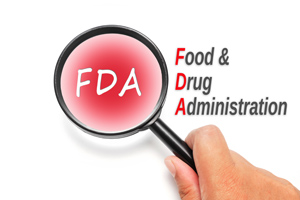
FDA Quality System Regulation (QSR/GMP) & FDA Inspections
FDA Quality System Regulation (QSR/GMP) & FDA Inspections
(On-site or Virtual Private Group/Company Training)
Location: On-site or Virtual
Who: Your entire company, department, project team, you select
-
Overview:
FDA enforcement actions; such as, Warning Letters & Consent Decrees for Quality System violations can have a devastatingly negative impact both financially, competitively, and emotionally on a company. This course will provide an understanding of FDA’s Quality System Regulation (QSR), 21 CFR 820, for medical device manufacturers and how it impacts all departments and personnel throughout an organization. The burden of complying with the QSR does not all fall on the Regulatory or Quality department. It is important that all departments throughout a company understand that they must fulfill their Quality System obligation in order for a Quality System to be compliant with the law. Understanding how you and your department’s role fits into the QSR puzzle is essential in complying with the Quality System regulation and not causing an FDA enforcement action. This course will also explain how FDA conducts inspections, how to properly prepare, what can happen, and what to do if the inspection does not go well. This course will be beneficial to all employees of medical device manufacturers and their vendors. A former FDA Field Investigator for over 35 years and over 400 QS inspections can be available as a featured instructor.
What you will learn:
- Understanding of the Elements of FDA QS Regulation (21 CFR Part 820)
- Key factors in obtaining and maintaining compliance
- What is required to comply and expected by FDA to show compliance during a FDA Inspection
- Knowing when you are out of compliance and typical QSIT findings
- What Quality System information is needed to support Submissions, PMA, 510(k), IDE
- Executive Management’s critical role in QSR compliance & QSIT inspections
- Concepts and considerations when implementing multiple quality systems such as FDA QSR and ISO 13485
- How to prepare & handle an FDA Inspection to avoid a 483 or Warning Letter
- Examples of non-conformances found by FDA
- FDA’s current hot buttons for or during QSR inspections
- How to know and what to do if you your inspection starts to experience problems!
Benefits of Attending:
- Lower risk of FDA compliance and enforcement actions
- Learn firsthand about FDA investigations & enforcement activities from a 30 year FDA veteran of investigations.
- Learn how to prepare & handle your next inspection before it is too late.
- Cross-department understanding of QSR roles
- Assist with the creation or maintenance of a compliant Quality System
- Help to create a more efficient Quality System
- Lower personnel liability
- Higher quality products
- More buy-in and less departmental bickering
- Meet the training requirements of FDA
- You will be able to sleep at night!
Abbreviated Outline:
- A. Brief History and Rationale for the QSR (21 CFR 820)
- B. FDA QSR compliance & enforcement tools and activities. What can happen!
- C. Definitions, confusing terms, mapping of terms & documents
- D. QSR element section details and common deliverables & Departmental Roles in each
- E. Company activities and QSR compliance requirements, including vendors to medical device manufacturers
- F. Implementing multiple quality systems within one company, e.g. FDA QSR and ISO 13485
- G. Importance of Internal Audits and how to conduct
- H. Types of FDA Inspections, including accredited 3rd Party Inspections
- I. FDA Inspection Methods, including QSIT
- J. How to Prepare for and Handle your FDA Inspection
- K. Typical Findings and current FDA Hot buttons
- L. Good & Bad Inspections-What happens next
- M. How to respond to an FDA enforcement action
- N. Summary & Review
Instructor(s): To be determined based on schedule and your specific needs. All instructors are very experienced and experts in the field being taught. Biographies will be provided and a discussion with the instructor(s) will be arranged so that a proposal can be provided for training that meets your needs.
Duration: Standard course is approximately 8 hours. Customized courses can vary. On-site courses are typically taught in 1 day. Virtual courses can be taught over multiple days, e.g. 2 days for 4 hours/day, etc.
Request a training proposal for your company.